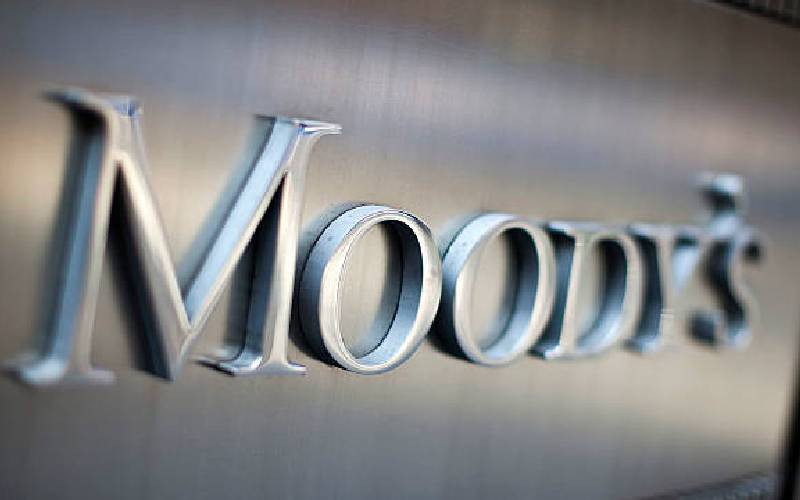Kenya: When he rose to respond to a question asked by a business journalist on an alleged go-slow by about 3,000 suppliers over non-payment, the man who got Uchumi out of the jaws of receivership and insolvency looked agitated.
The question was thrown at Jonathan Ciano, the receiver manager turned chief executive of Uchumi, in the presence of the National Treasury Cabinet Secretary Henry Rotich, during a media briefing last week.
Barely five months ago, Mr Rotich was convinced Uchumi was on the right track and committed to inject an additional Sh264 million of taxpayers’ funds into the retail chain to support its expansion.
“Where did you get that information from? It is not true. Our suppliers have been paid. In fact, two days ago we released Sh500 million,” said Mr Ciano, adding: “You cannot say you are in business when you don’t have debts. You must borrow. I have debts even with banks.”
Expansion plans
Whether or not Uchumi is on the right course, particularly with its expansion plans, remains to be seen. However, signs are that the country’s oldest retail chain is going through a rough patch.
This comes three years after it was re-admitted to the Nairobi Securities Exchange (NSE) after it temporarily closed shop in 2006.
Although worries about suppliers not being paid seem to be treated as a “creation of the media”, a look at the company’s financials paints a different picture.
Uchumi is operating on a negative working capital of Sh1.1 billion. This means the company’s short-term (current)liabilities exceed its short-term assets. In general terms, this indicates a company is in financial distress.
The implication of this is that Uchumi does not have enough cash to meet its short-term debt obligations when they fall due, which would include payments to suppliers.
A senior member of the board appeared to have assented to the fact that the company’s financials are not looking good, but was confident Uchumi would not fall by the wayside a second time.
“We don’t need working capital. We buy goods on credit, we lease the premises and we lease the equipment. That is the model of our business,” the source said.
“In fact, you can start a supermarket without any money.”
But there are those concerned about the negative working capital, especially for the second year in a row.
Cash is paramount, especially for a retailer that wants to increase its regional presence.
Stay informed. Subscribe to our newsletter
Uchumi is pushing through an ambitious expansion programme that will see it open more branches in Kenya, Uganda, Tanzania and Rwanda.
“One of the best ways to solve a working capital issue is to increase your cash sales, reduce costs and manage suppliers by asking for extended repayment periods,” said John Koigi, a financial analyst.
“Uchumi needs to focus on better profit margins, meaning they need to look at their branches and product offerings and see where they are losing money and plug the leaks. This will put them in a better position to start building their cash reserves; it is what Apple and Arsenal have done.”
RIGHTS ISSUE
Ciano said the cost of the seven-year plan is Sh2 billion, adding that Sh1 billion has already been raised through asset financing (Sh400 million) and borrowing (Sh600 million) from commercial banks.
The balance is to be met through a rights issue scheduled to be launched next month.
“The journey has started. We are not opening branches to please anybody, but in line with the economic growth in the region,” said Ciano.
Currently, Uchumi has 40 branches in the region, with Kenya hosting 31, Uganda five and Tanzania four.
The company plans to open six more branches in Kenya, one branch in Uganda and two in Rwanda during its current financial year (July 2014 to June 2015).
Uchumi, however, is grappling with non-performing regional outlets, which partly explained its seven per cent decline in profit during the 12-month period to June 30.
“On the regional front, Tanzania sales grew 10 per cent. Though this market has low retail penetration, Uchumi has been outpaced by Nakumatt, which became the largest retailer after buying out Shoprite’s three stores,” stated Standard Investment Bank (SIB) in a research note earlier this month.
“In Uganda, total sales declined 12 per cent, which management attributed to competition, supply chain challenges and untenability of some locations. Kenya sales, on the other hand, marginally grew by 2 per cent, which management attributed to freezing of public spending, effects of devolution as well as high costs of living, which affected customer propensity to spend.”
In absolute numbers, the company’s profit before tax (PBT) dropped to Sh452.74 million from Sh485.9 million the previous year. It has declared a dividend of Sh0.30, similar to last year’s payout.
Further, its total current assets and liabilities stood at 2.25 billion and Sh3.35 billion, respectively, which is where the negative working capital of Sh1.1 billion is seen.
In the previous financial year, which ended on June 30, 2013, Uchumi also recorded a negative working capital of Sh720 million, with its current assets and liabilities standing at Sh1.73 billion and Sh2.45 billion, respectively.
Finance costs jumped 302 per cent to Sh64.64 million from Sh16.06 million as a result of new loan facilities to fund expansion after a delay in the planned rights issue.
Uchumi is planning to float 100 million new shares, with existing shareholders expected to receive one share for every two held.
Capital Markets Authority (CMA) Acting Chief Executive Paul Muthaura said the delay in listing the cash call was not coming from his institution’s end.
“The company (Uchumi) has been advising us that they are still addressing some internal matters to bring them into compliance, and have indicated they will revert once ready. The issue is, therefore, not pending with the authority in any manner,” he said.
Consumer preferences
The retailer’s growth plans require a well-loaded war chest, particularly if Uchumi’s revenues continue to take a hit. And according to analysts at AIB Capital, this is likely, considering the tough competition in the retail sector.
Through a market report this month, the analysts noted that the business environment is becoming increasingly competitive, with the establishment of shopping malls and mini-supermarkets in residential areas.
“With a rising middle income class and the youth constituting the larger portion of the population, Uchumi Supermarkets will have to up their game to satisfy dynamic and frequently changing consumer tastes and preferences,” they said.
“The company’s ability to realise significant growth will highly depend on its aggressiveness in implementing its expansion, which should be geared towards countering competition.”
According to the report, Uchumi is currently experiencing negative cash flows (currently estimated at negative Sh288 million), which has seen it take up more debt to finance expansion, which has increased its finance costs.
“Uchumi’s intended cash call is therefore, inevitable if the company is to effectively compete in the retail sector and regain its competitive advantage.”
The company’s share price has been swinging between Sh10.5 and 12.50 the last two months — closing at Sh11.40 on Friday. As a result, it may be compelled to increase the number of shares issued to reach its target capital as it will have to offer the new stock at a discount. This, though, would dilute existing shareholding.
“Taking this into account, Uchumi might consider the option of taking more debt in the meantime. We, therefore, hold a 50/50 chance of the rights issue being undertaken this year,” said AIB Capital.
And Mr Koigi added: “Psychologically, selling a rights issue — additional shares to investors — might be a tough sell at the moment. Uchumi might have to offer a large discount for additional shares. Investors will look at how the shares touched Sh18 in March, but have since been sliding. So if they are to buy into Uchumi, they need a huge discount that offers room for profit.”
Location, location
But expansion is really not something the retailer can afford to postpone. Competition is intensifying in the retail sector, with supermarket chains moving to acquire strategic locations to boost their business.
Uchumi has been at a disadvantage on this front, with only two branches in Nairobi’s central business district and a few anchor tenancies in shopping malls — where customers are looking for one-stop shopping — compared to its competitors.
This has reduced its visibility, revenue generation capacity and market share.
“We believe the retailer has been less aggressive in marketing, advertising and prime location identification. Consequently, Uchumi lags behind major retailers like Nakumatt, Tuskys and Naivas, in terms of revenue generated per store,” said SIB analysts.
Koigi added that the listed retailer may also be suffering the “Tesco curse” on the pricing front.
The UK’s Tesco, the world’s second-largest retailer by profits, has drastically reduced its dividend payout, and spending and expansion plans to shore up its finances.
The supermarket, which has seen a four per cent drop in sales in the last three months — the steepest reduction among the main retailers in the UK — has been battling increased competition from discount stores that offer lower prices.
It has been forced to cut its dividend and slash spending to fund a price offensive that is expected to bring it back to profitability.
“Uchumi will have to make some tough decisions to retain its market share,” said Koigi. “Can it really afford to continue an aggressive expansion plan into the region?”
It will be a tough call, particularly because Kenya’s retail industry is projected to perform well over the next five years. This is attracting both local and international retailers to the market.
The forecast is partly based on the Government’s increased investment in infrastructure across the country, which will enhance the transportation of commodities.
Already, France’s Carrefour, Europe’s largest retailer, has booked space in two shopping malls under development.
“The local Carrefour outlet is expected to replicate the firm’s strategy of stocking major brands alongside its own branded items, with most of the fresh produce ... sourced from local suppliers. Carrefour is seeking to tap into Kenya’s growing ‘malling’ culture fuelled by a growing middle class, which has increased disposable incomes to splurge on shopping,” noted SIB.
Carrefour’s impending entry and strategy has seen the main retailers — Uchumi, Nakumatt, Tuskys and Naivas — increase investment in own-branded products.
South Africa’s Massmart is also expected to open an outlet at the upcoming Garden City Mall along Thika Road.
South African supermarkets have been looking to expand into emerging markets, including the East African region, due to limited retail expansion opportunities in their home country.
Retail penetration
According to Citi Group, Kenya has a retail penetration of 30 per cent, which is second in Africa to South Africa at 60 per cent. This basically means that only 30 per cent of retail shopping in Kenya is done in formal outlets.
The retail industry’s performance is largely dependent on the stability of economic drivers.
Higher interest rates increase the cost of borrowing, thus reducing the levels of private consumption as well as piling higher finance costs on retail stores.
A higher level of inflation reduces an individual’s purchasing power and also increases the cost of inputs for a business. The aggregate impact is a reduction in revenues and an increase in the cost of sales, thus reducing margins.
[email protected]
 The Standard Group Plc is a
multi-media organization with investments in media platforms spanning newspaper
print operations, television, radio broadcasting, digital and online services. The
Standard Group is recognized as a leading multi-media house in Kenya with a key
influence in matters of national and international interest.
The Standard Group Plc is a
multi-media organization with investments in media platforms spanning newspaper
print operations, television, radio broadcasting, digital and online services. The
Standard Group is recognized as a leading multi-media house in Kenya with a key
influence in matters of national and international interest.
 The Standard Group Plc is a
multi-media organization with investments in media platforms spanning newspaper
print operations, television, radio broadcasting, digital and online services. The
Standard Group is recognized as a leading multi-media house in Kenya with a key
influence in matters of national and international interest.
The Standard Group Plc is a
multi-media organization with investments in media platforms spanning newspaper
print operations, television, radio broadcasting, digital and online services. The
Standard Group is recognized as a leading multi-media house in Kenya with a key
influence in matters of national and international interest.








